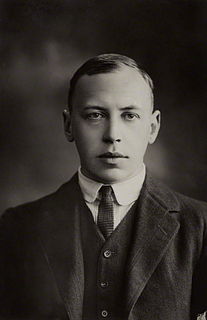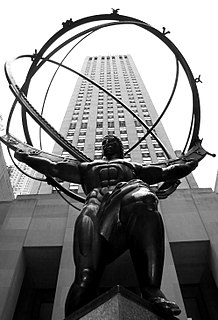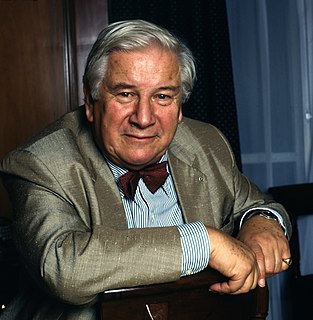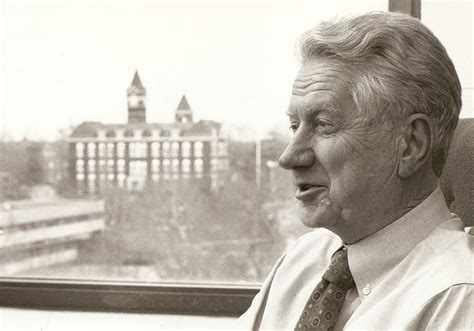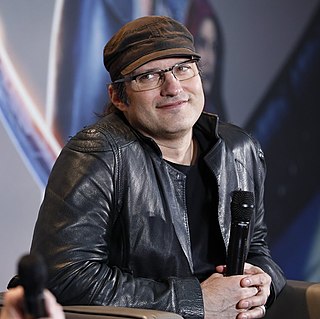A Quote by Albert Einstein
The history of scientific and technical discovery teaches us that the human race is poor in independent and creative imagination.
Related Quotes
The history of scientific and technical discovery teaches us that the human race is poor in independent and creative imagination. Even when the external and scientific requirements for the birth of an idea have long been there, it generally needs an external stimulus to make it actually happen; man has, so to speak, to stumble right up against the thing before the idea comes.
So the history of discovery, particularly cosmic discovery, but discovery in general, scientific discovery, is one where at any given moment, there's a frontier. And there tends to be an urge for people, especially religious people, to assert that across that boundary, into the unknown, lies the handiwork of God. This shows up a lot.
Through scientific discovery and technological innovation, we enlist the forces of the natural world to solve many of the uniquely human problems we face - feeding and providing energy to agrowing population, improving human health, taking responsibility for protecting the environment and the global ecosystem, and ensuring our own Nation's security. Scientific discoveries inspire and enrich us, teaching us about the mysteries of life and the nature of the world.
The story of scientific discovery has its own epic unity-a unity of purpose and endeavour-the single torch passing from hand to hand through the centuries; and the great moments of science when, after long labour, the pioneers saw their accumulated facts falling into a significant order-sometimes in the form of a law that revolutionised the whole world of thought-have an intense human interest, and belong essentially to the creative imagination of poetry.
Throughout history, independent minds have carried mankind forward. Whether they identified how to make fire or manufacture tools, develop rational philosophy or create man-glorifying art, pioneer scientific knowledge or invent the electric light, independent thinkers have created the goods on which human life and prosperity depend.
...let us recognize that extreme poverty anywhere is a threat to human security everywhere. Let us recall that poverty is a denial of human rights. For the first time in history, in this age of unprecedented wealth and technical prowess, we have the power to save humanity from this shameful scourge. Let us summon the will to do it.
I think imagination is at the heart of everything we do. Scientific discoveries couldn't have happened without imagination. Art, music, and literature couldn't exist without imagination. And so anything that strengthens imagination, and reading certainly does that, can help us for the rest of our lives.
In a word, the Holy Scripture is the highest and best of books, abounding in comfort under all afflictions and trials. It teaches us to see, to feel, to grasp, and to comprehend faith, hope, and charity, far otherwise than mere human reason can; and while evil oppresses us, it teaches how these virtues throw light upon the darkness, and how, after this poor, miserable existence of ours on earth, there is another and an eternal life.






